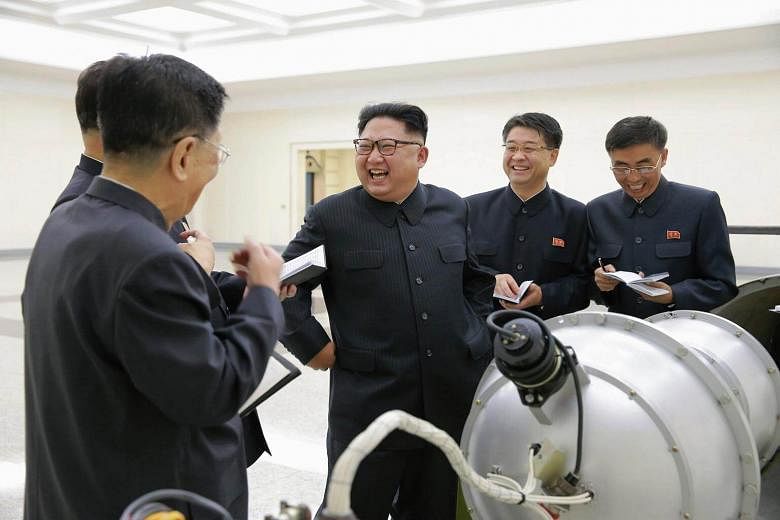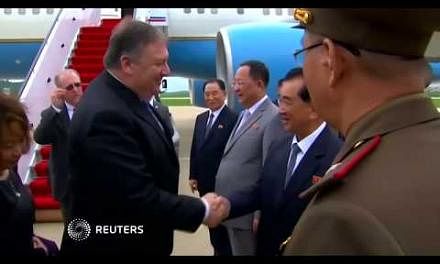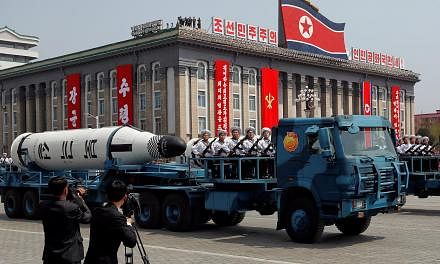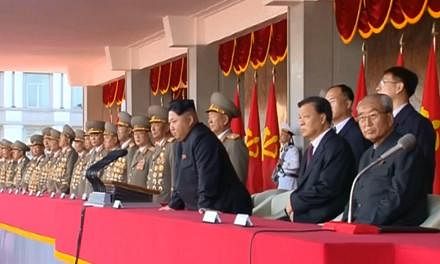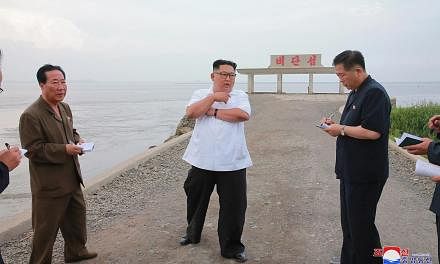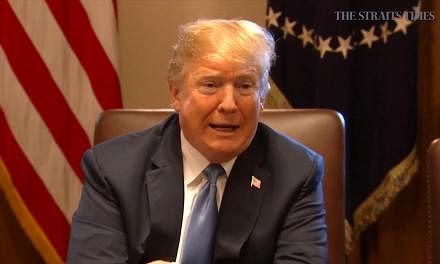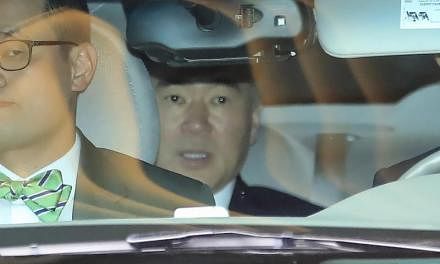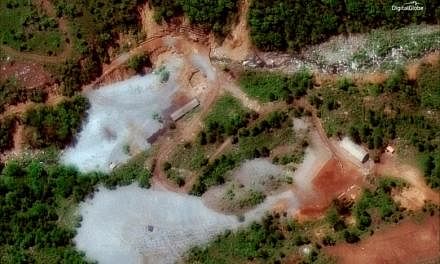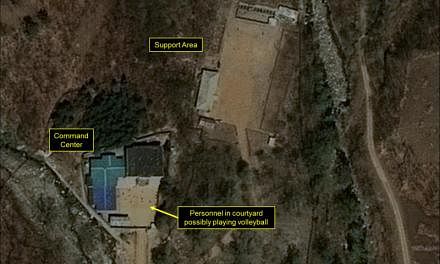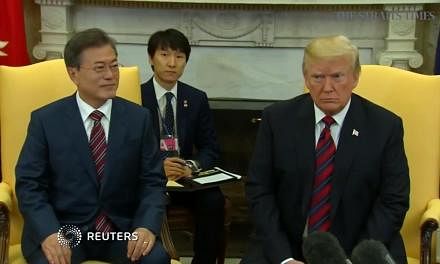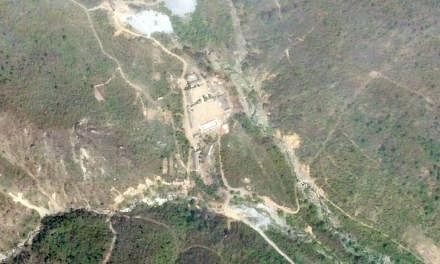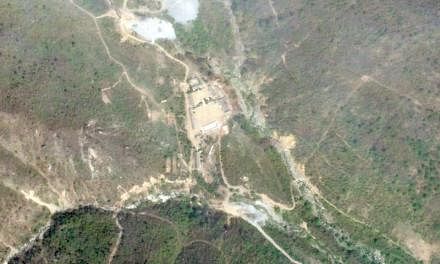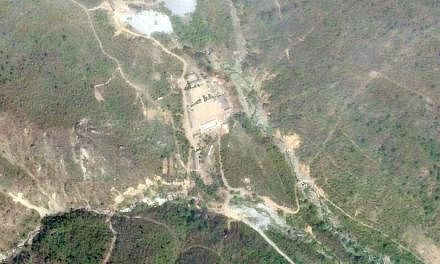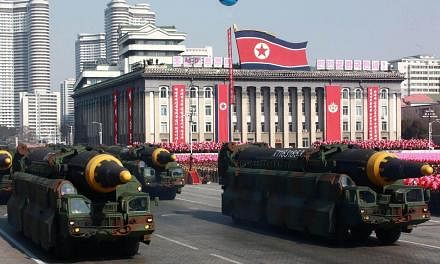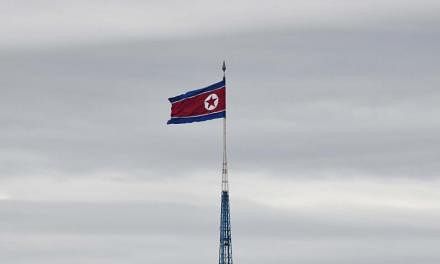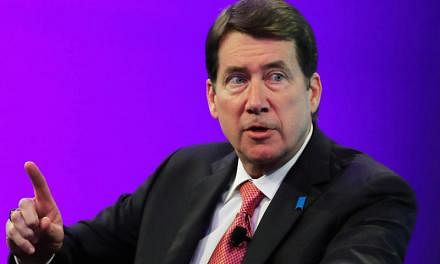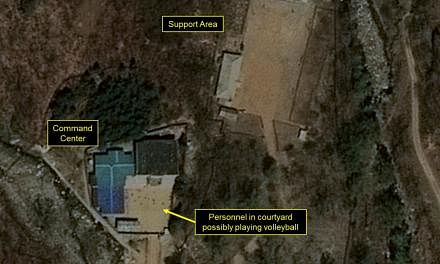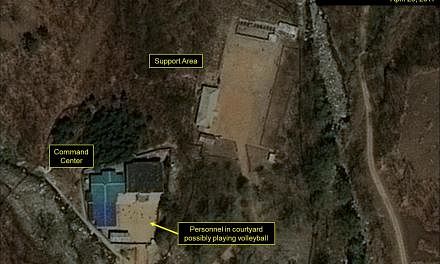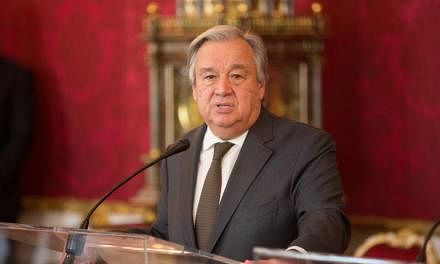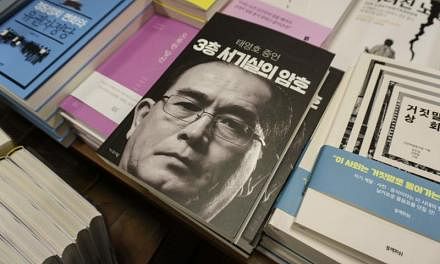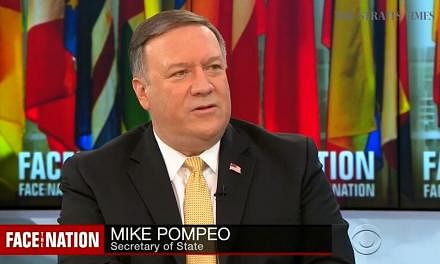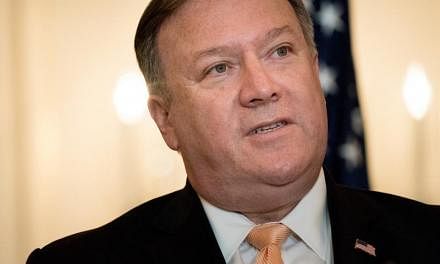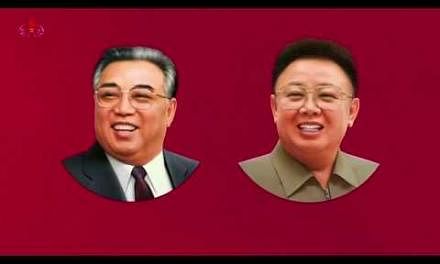BEIJING (AFP) - North Korea's escalating nuclear provocations are putting putative ally China in an increasing bind, and may be part of a strategy to twist Beijing's arm into orchestrating direct talks between Pyongyang and Washington, analysts said.
The North's Kim dynasty has repeatedly used nuclear brinkmanship over the years in a push to be taken seriously by the United States but traditionally avoided causing major embarrassment to China, its sole major ally and economic lifeline.
But leader Kim Jong Un's detonation Sunday of what he called a hydrogen bomb marked the second time this year that the 33-year-old family scion upstaged Chinese President Xi Jinping just as he was hosting a carefully choreographed international gathering.
Communist propaganda deifies Mr Xi as an infallible father figure, but Mr Kim's actions are puncturing the facade and exposing the Chinese leader's impotence towards the nuclear crisis on his doorstep.
"North Korea's repeated nuclear and missile tests have put China in a more and more difficult position," said Professor Shi Yinhong, Director of the Center for American Studies at Renmin University in Beijing.
Prof Shi said Mr Kim - who has never met Mr Xi - had become "more and more hostile towards China" after Beijing signed on to tougher new international sanctions against Pyongyang.
That has apparently made Mr Kim more willing to bring pressure on Mr Xi, said Prof Jean-Pierre Cabestan, a political science professor at Hong Kong Baptist University.
Mr Kim may be using Mr Xi "like a cue ball in billiards", Mr Cabestan said, "in order to get negotiations with the United States".
"But he has to be careful not to infuriate Xi as China is his only lifeline."
Pyongyang's sixth nuclear test, by far its most powerful to date, came just as leaders of the five Brics emerging economies - Brazil, Russia, India, China, and South Africa - gathered for a summit.
The meeting in the southeastern city of Xiamen was intended to be the typical China-hosted event - micromanaged to the smallest detail to portray Mr Xi at home as a wise and benevolent world leader.
But Mr Kim stole the spotlight, just as he did in May when the North conducted a missile test that embarrassed Mr Xi as he hosted a large international summit on trade.
Both Pyongyang's nuclear and missile programmes have been banned by the UN Security Council, and Sunday's (Sept 3) blast dramatically raised the stakes in Mr Kim's standoff with the world.
Dr David Kelly of Beijing-based think tank China Policy said the new sanctions and China's decision earlier this year to suspend North Korean coal imports - a crucial source of cash - were likely triggers for Pyongyang's growing belligerence.
"The message is: I am not to be messed with," said Dr Kelly.
"He's been messed with by the games played by Washington and Beijing."
The pressure comes at an inopportune time for Mr Xi, who next month presides over the ruling Communists' once-every-five-years party congress, the one-party state's most consequential political gathering.
Mr Xi is expected to decide the party leadership for years to come and consolidate his own grip, and the delicate, stage-managed event is always preceded by months of tightening controls.
But the nuclear standoff is increasingly making Mr Xi appear powerless to prevent a deepening crisis next door.
He now looks paralysed, with US President Donald Trump criticising China for not doing enough, and North Korea acting increasingly aggressive, analysts said.
Prof Shi, of Renmin University, said the escalating tensions are "causing a major stir and bring a challenging international situation" into the spotlight just before the congress and at a time when the party is most risk-averse.
Ultimately, Mr Kim's true intentions may never be fully known but one thing appears certain: he views his nuclear and missile programmes as vital to protecting his rule, said Prof Shi.
"The years have proven that all of the military threats will not change Kim's determination to develop nuclear weapons, nor block his ability to do so," he said.
